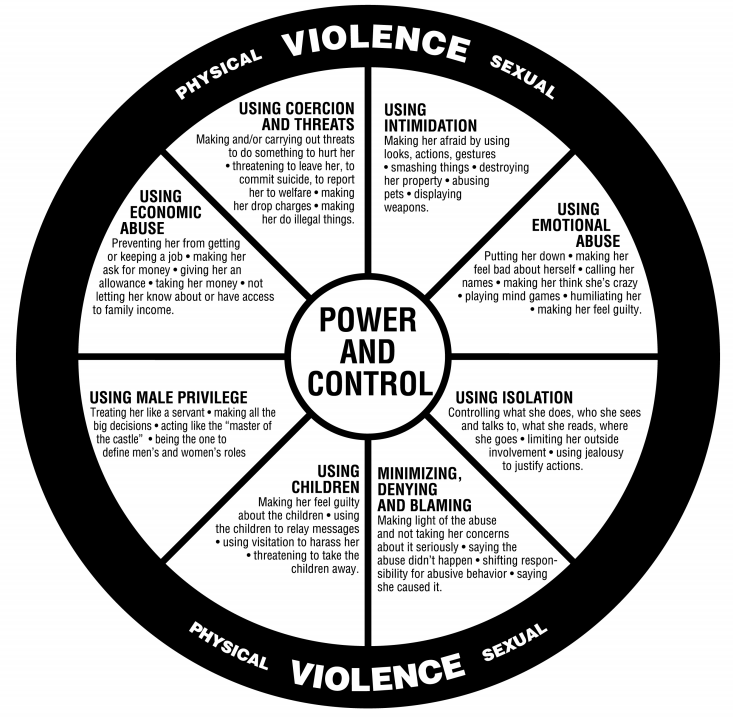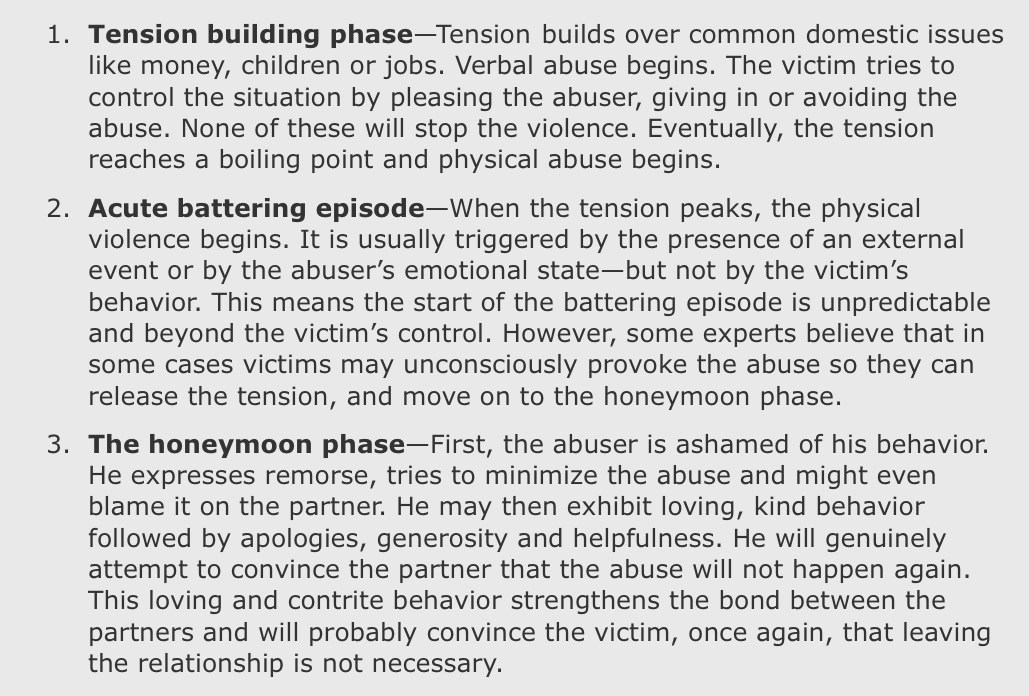Abuse is not love. It is about power and control over a person. It usually starts small in a relationship and becomes a bigger problem over time. Abuse doesn’t typically begin with physical harm; it begins with emotional harm.
The abuse gets worse as the relationship progresses. He/She may not be hitting you while you are dating, but the controlling behaviors are often evident early in the relationship. Those controlling ways are abuse. That’s why it is so imperative to recognize the signs of abuse before you are in too deeply.
The impact of abuse is much more widespread than people acknowledge.
You may be thinking this doesn’t apply to you because you aren’t being abused, but it does, because someone you know is being abused.
Abuse has no socioeconomic, racial, or cultural barriers. It happens to people who are rich and to people who are poor. It can happen to anyone, in any walk of life. An article on Livestrong.com provides some important information about abuse and states:1
“Domestic violence is the leading cause of injury to women between the ages of 15 to 44”.
This means that women in this age range are more likely to be harmed by their partner than they are to be injured in a car accident.
Abuse is not just about physical harm.
Many people associate abuse with physical harm, but there is so much more involved in abuse than physical harm. Abuse is about a person wanting control over another person. That desire for control leads to a variety of controlling behaviors including isolation from friends and family, threats, emotional abuse, and more.
Most domestic violence centers use the “Power and Control Wheel” to show the types of abuse, as they go far beyond the physical. Abuse is about power and control which come in these forms, often far before the physical abuse ever begins:
Abusers may change, but not very likely.
Most abused individuals who stay in the relationship do so because they hope the person will change. Unfortunately, there is not a lot of research or data that points to abusers changing their ways.
Is it possible? Yes, but many researchers, including well known abuse expert Lundy Bancroft, say that an abuser changing their ways is a lifelong process and will only happen if an abuser is determined to change.2 It is like a disease that never truly goes away but just becomes dormant.
In the case of abuse, it will only become dormant because the abuser seeks help and has decided not to abuse anymore. You also need to consider the likelihood of them changing, which experts say is not promising. The National Domestic Violence Hotline states,3
“There’s a very low percentage of abusers who truly do change their ways.”
It takes a huge effort on the part of an abuser to change their ways. If you are dating someone that exhibits the signs of abuse you need to seriously assess your future and what it will be like when the abuse gets worse as time progresses.
How to Know if They Have Changed
How do you know if your abuser has really changed or if they have really stopped abusing you?
The National Domestic Violence Hotline describes how an abuser exhibits genuine change. Some of these changes include him no longer making excuses for the abusive behavior, recognizing the controlling patterns that underly the abuse, making amends with those he abused, and most importantly exhibiting new behaviors when a situation becomes heated.
An Open Letter From a Former Abuser provides a real life example of how an abuser changed and describes how difficult that change can be:4
Are you able to express your opinion to your partner without fear of him lashing out at you verbally or physically? Are you able to be open and honest with your partner about your feelings and feel comfortable that he won’t respond abusively?
If not, then he hasn’t really changed.
Abuse is cyclical. The abuse may just be in the post-abuse phase (also known as the honeymoon phase). The honeymoon phase of abuse is when your partner is being sweet and kind, trying to make up for the recent abuse he inflicted on you. The change isn’t real if it goes right back into the cycle of abuse after time has passed and he has begun to forget about how he abused you.
The Domestic Violence Round Table explains the three phases of abuse very clearly:
The honeymoon phase is usually what keeps most abused individuals in the relationship. They have such high hopes that things will remain in that phase that they stay in the relationship after an abusive episode has happened.
In most cases the abuser has not sought professional help and the abuse cycle will continue. It’s just a matter of time before the cycle starts over. It’s up to you whether you stick around in an abusive relationship to be abused again. If you are being abused, end the cycle by seeking help today.
If you are being abused, get help now.
Life is too short to allow yourself to be harmed and mistreated by another human being. Nobody deserves that treatment. There are domestic violence centers all around the country that help abused individuals for free. You can also contact the National Abuse Hotline at 1-800-799-7233 for immediate and free help.
If it is a friend or family member that is being abused you need to be supportive and listen to her. It is extremely hard for a person to leave an abusive situation because of a variety of reasons, so you need to be supportive and not judgmental.
Some reasons that a person may not leave include: they fear embarrassment, they don’t have the money to start a life on their own, they love the person, or a number of other reasons. Often it’s not just one reason, which makes it even more difficult to leave. The Love Is Respect Website outlines many of the reasons why people stay in abusive relationships.6 Provide your abused friend with resources for help, such as information from you local domestic violence shelter or hotline. Most importantly, be there to listen to your friend and not judge her for her difficult situation and decisions.
Professional help is what an abuser needs. The National Domestic Violence Hotline states that abusers need to participate in a “Certified Batterer Intervention Program” if they want to change.
If you can’t leave, create a plan for your safety.
Sometimes a person is not prepared to leave their abusive situation for a variety of reasons. She may not have a place to stay, not have any money, fear embarassment, or any number of reasons. It is important to have a safety plan in place so that if things escalate in an abusive situation you can easily get to a safe place.
Some ways to prepare include having a plan for multiple escape routes in the home, have a specific friend or contact to call for help, have money saved for emergency exit, and have information for a local domestic violence center near you. The “Stop Relationship Abuse” Website provides greater detail on safety planning including having important documents such as birth certificates on hand in case you have to leave in an emergency.7





One Response
Thank you for this awareness. Now i see why some people are not willing to let go of an abusive relationship.